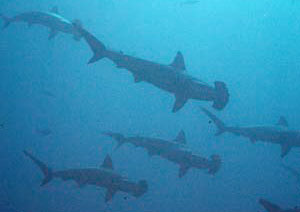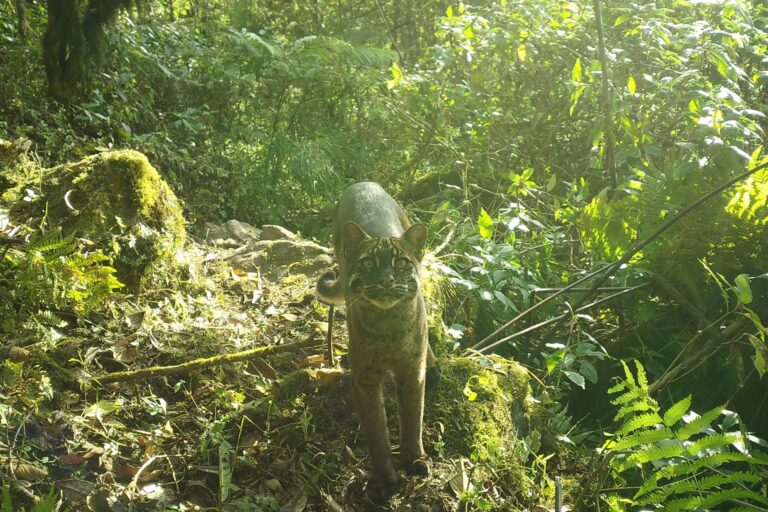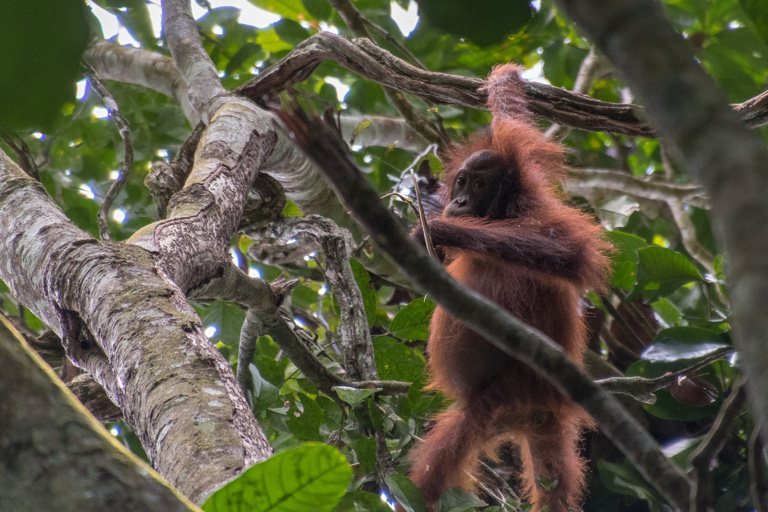Shark has virgin birth
Shark has virgin birth
mongabay.com
May 23, 2007
A captive hammerhead shark gave birth to a pup without mating, reported researchers on Wednesday. It is the first time that parthenogenesis, as virginal birth as called, has been observed in a shark.
Writing in the journal Biology Letters, a team of scientists led by Dr Demian Chapman of the Pew institute for Ocean Science found no trace of DNA of male origin in the baby shark.
“The findings were really surprising because as far as anyone knew, all sharks reproduced only sexually by a male and female mating, requiring the embryo to get DNA from both parents for full development, just like in mammals,” said Dr Paulo Prodöhl of Queen’s University Belfast in Northern Ireland. “The discovery that sharks can reproduce asexually by parthenogenesis now changes this paradigm, leaving mammals as the only major vertebrate group where this form of reproduction has not been seen.”
 Hammerhead sharks. Courtesy of USGS |
“We may have solved a general mystery about shark reproduction — our findings suggest that parthenogenesis is the likely explanation behind the anecdotal but increasing observations of other species of female sharks reproducing successfully in captivity despite not having contact with males,” added Dr Mahmood Shivji of at Nova Southeastern University in Florida. “It now appears that at least some female sharks can switch from a sexual to a non-sexual mode of reproduction in the absence of males. Unfortunately, this occurrence is not benign because it results in reduced genetic diversity in the offspring since there is no new genetic variation introduced from the paternal side.”
The researchers said the discovery raises concerns about the genetic and reproductive health of wild shark populations, which are fast dwindling in the wild due to overfishing.
“Not only does it experience reduced genetic diversity because it has no father, but around half of the genetic variation present in the mother is not passed on to the offspring,” said Chapman. “Female sharks might reproduce like this more often when they have difficulty finding mates at low population densities. This could hasten the erosion of population genetic diversity and perpetuate the production of genetically disadvantaged offspring.”
Earlier this year parthenogenesis was in the news when a female Komodo dragon reproduced asexually at Chester Zoo in northern England.
This article is based on a news release from Queen’s University Belfast














